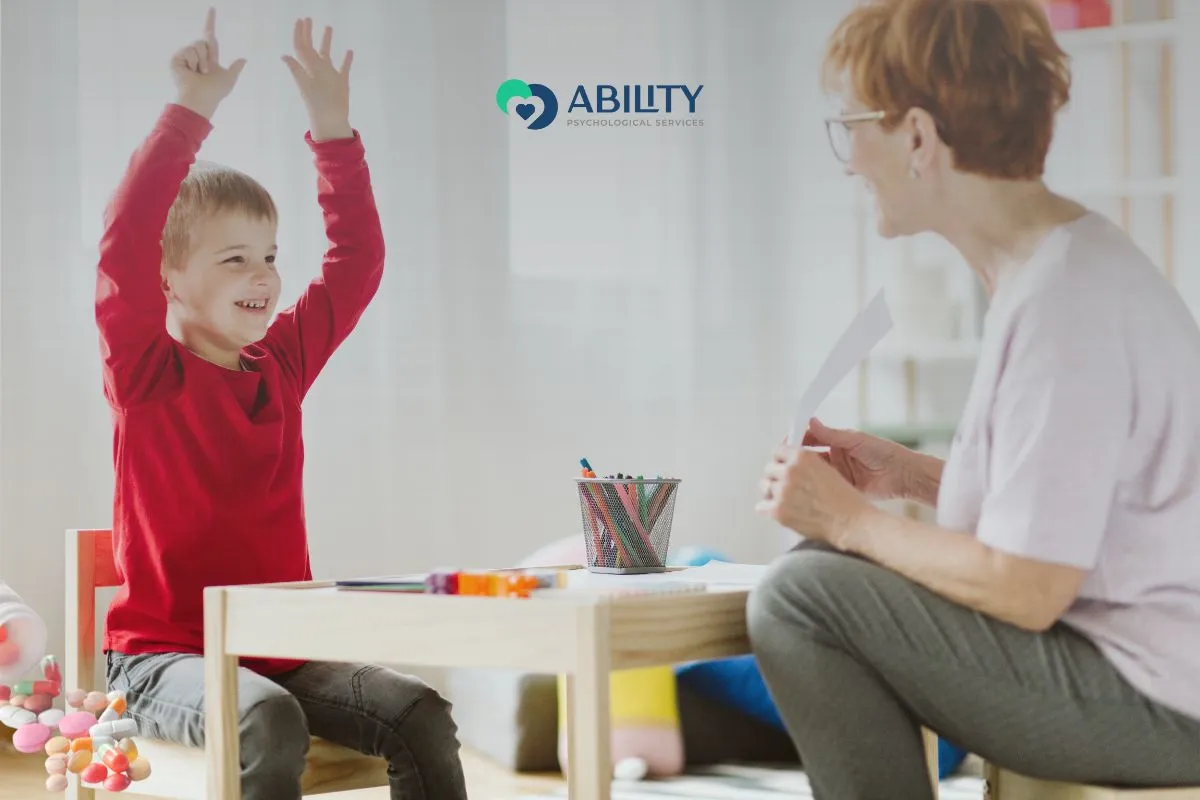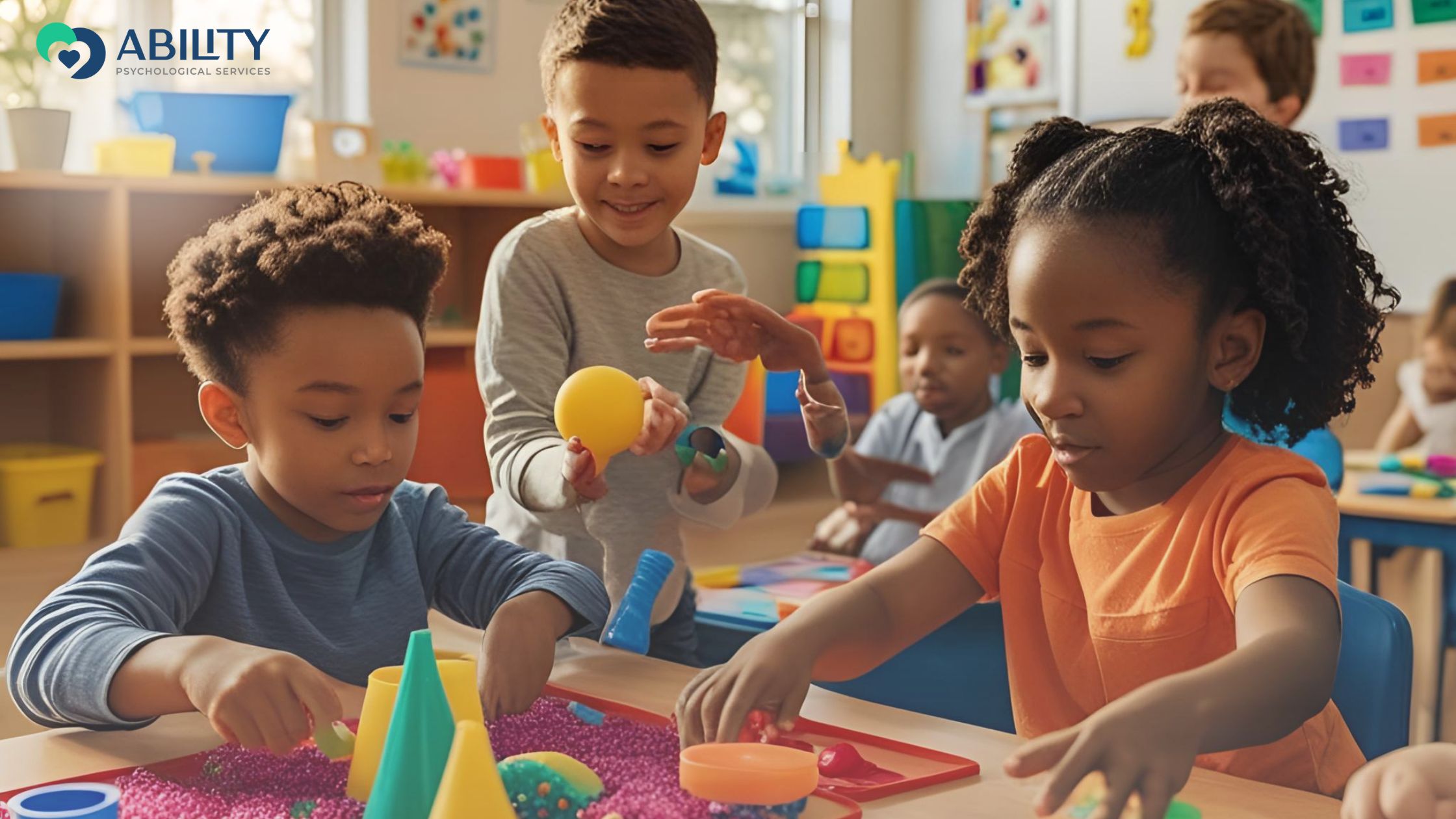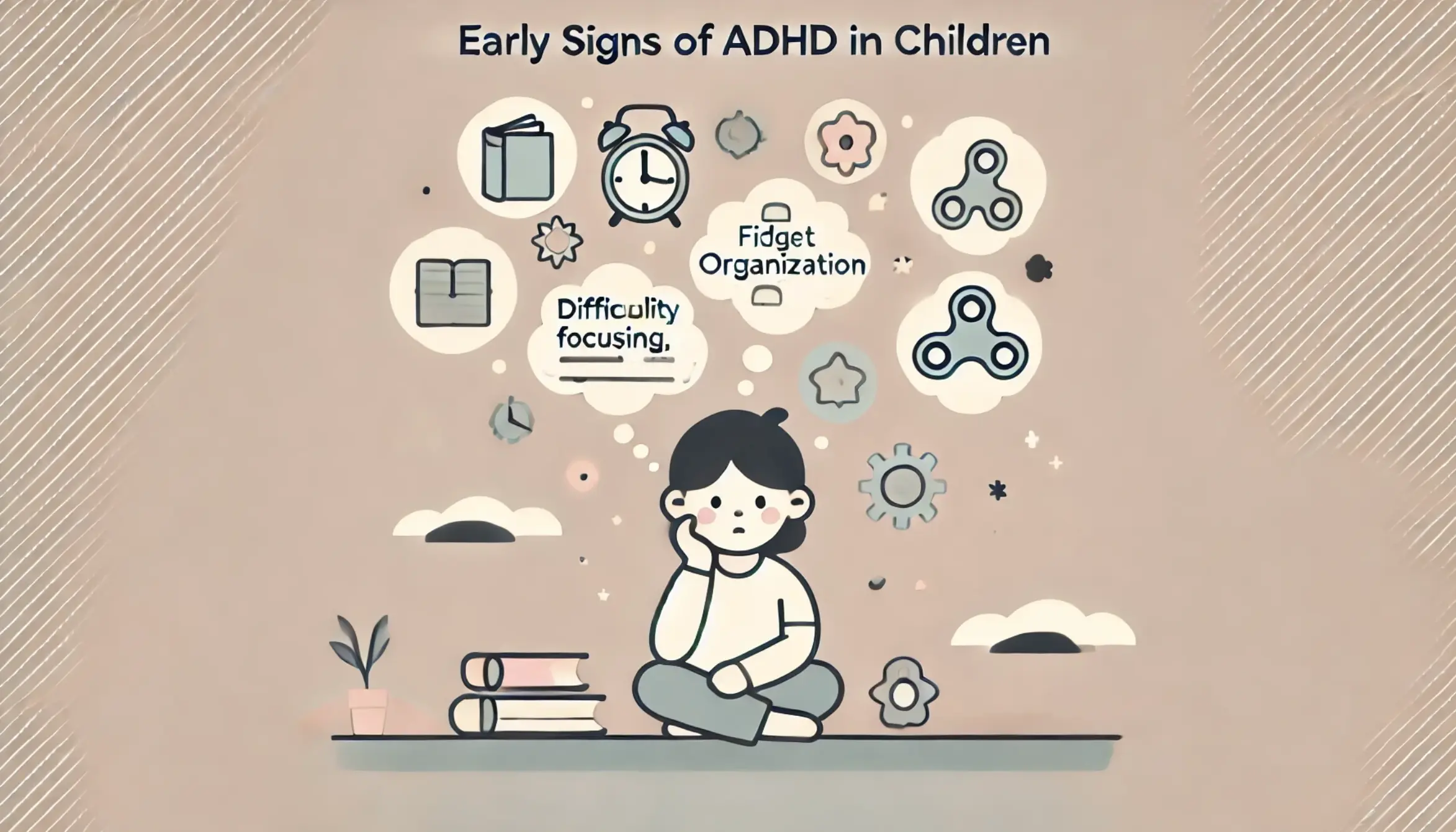Supporting Your Child After an ADHD Diagnosis
When your child is diagnosed with ADHD, it can bring a mix of emotions—relief from finally having answers, but also uncertainty about what to do next. What kind of support will they need at school? How can you help them manage emotions, stay focused, and feel confident?
At Ability Psychological Services, we understand that every child with ADHD deserves a support system built specifically for them. Whether your child has just been diagnosed or you’re trying to improve day-to-day challenges, the right plan can make a world of difference.
If you’re still learning about what ADHD looks like in children, including the signs to watch for, we recommend reading our post on the early signs of ADHD in children to better understand how symptoms often begin to show at home and school.
Building a Support System for a Child with ADHD
A well-rounded support system is like a safety net — it helps your child manage the challenges of ADHD while building confidence, resilience, and life skills. At Ability Psychological Services, we help families create customized support systems that adapt as their child grows.
Here are the key building blocks:
1. Professional Guidance and Evaluation
A good support system begins with knowledge. Understanding exactly how ADHD is affecting your child helps guide decisions and interventions.
At APS, we provide:
- Comprehensive psychological evaluations
- Cognitive, emotional, and behavioral testing
- Clear, jargon-free feedback for families
- A tailored care plan based on your child’s unique profile
This is the roadmap for everything else that follows.
2. Behavior Management Strategies at Home
Children with ADHD often respond best to positive, consistent reinforcement. Here’s how we help parents put structure in place:
- Set clear expectations: Use visual schedules or chore charts
- Break tasks into smaller steps: Avoid overwhelming your child
- Praise effort and small wins: Reinforce what is going well
- Use consistent consequences: Calm, predictable responses work best
We coach parents in sessions on how to stay consistent, reduce power struggles, and create a calm home environment that helps children thrive.
3. Academic and School-Based Support
ADHD often affects academic performance, even in bright and capable students. The key is advocacy and collaboration with your child’s school.
With APS support, you can:
- Request a 504 Plan or IEP to secure learning accommodations
- Work with teachers to implement classroom strategies
- Get documentation to support accommodations for testing or homework
- Learn how to attend school meetings prepared and confident
We guide parents through every step — from knowing your rights to reviewing your child’s education plan.
4. Emotional and Social Skills Support
ADHD can impact a child’s relationships — with friends, teachers, and even siblings. They may interrupt, miss social cues, or get overwhelmed easily.
Our therapists work with children to:
- Practice turn-taking and conflict resolution
- Build emotional regulation tools like “cool-down” strategies
- Role-play tricky social situations
- Build self-confidence and a positive ADHD identity
When kids feel emotionally supported, they become more resilient — at school and in life.
5. Parent Support and Mental Health
Supporting a child with ADHD takes energy, consistency, and compassion — and parents need support, too.
We help parents:
- Learn how to parent a child with ADHD without burnout
- Manage stress, guilt, or confusion that often comes with this journey
- Find realistic routines that work for their family
- Connect with local resources (tutors, educators, pediatricians) as needed
You’re not expected to do it all alone. APS becomes part of your team so you can be a strong support for your child.
6. Long-Term Monitoring and Adjustments
Children with ADHD grow and change — and so should their support plan.
Our ongoing care includes:
- Periodic reevaluations to reassess learning and behavior
- Progress check-ins with parents
- Help adapting routines as kids transition through school grades or life stages
- Transition support for adolescence, including emotional and academic readiness
Think of APS not as a one-time service, but a partner through your child’s journey.
Common Challenges After an ADHD Diagnosis

After a diagnosis, many families feel both relief and uncertainty. At first, it may seem like things should immediately improve—but in reality, it often takes time to find the right strategies and support.
Let’s take a closer look at some of the most common challenges families face in the months following a diagnosis—and more importantly, how we help address each one.
Struggles with Schoolwork
Even with high potential, many kids with ADHD fall behind academically due to trouble focusing or staying organized.
Ability Psychological Services offers:
- Academic assessments to identify learning barriers
- Documentation for 504 Plans or IEPs
- Teacher collaboration support to help educators understand and accommodate your child’s needs
Low Self-Esteem and Frustration
Many children with ADHD internalize frustration after repeated struggles. They might say things like “I can’t do anything right” or “I’m just bad at school.”
We help kids reframe those thoughts, recognize their strengths, and build confidence with:
- Positive reinforcement systems
- Emotion coaching and mindfulness tools
- Praise-based behavior strategies for home and school
Sibling Dynamics and Home Stress
As the demands of managing one child’s ADHD increase, it’s not uncommon for sibling dynamics to shift and for tensions to rise. Consequently, when one child’s needs become the center of attention for an extended period, sibling relationships may suffer, and overall family harmony can gradually begin to erode.
We offer parent sessions to:
- Talk through real-life scenarios
- Introduce sibling-inclusive routines
- Reduce conflict and increase teamwork at home
How to Talk to Your Child About ADHD
Explaining ADHD to your child in a way they can understand is one of the most empowering steps you can take. When children have a framework to understand their challenges—and the language to describe how they feel—they’re better able to work with you and others to build skills and confidence.
Here are a few things we recommend:
-
Use age-appropriate language:
For example, you might say, “Your brain works a little differently—it likes to move fast and gets distracted sometimes. That means we need to find ways to help it slow down and focus when it matters.”
-
Focus on strengths:
Let your child know that ADHD is only one part of who they are. Say things like, “Lots of kids with ADHD are super creative, curious, and full of ideas. You have an amazing imagination, and we want to help you use it in ways that work best for you.”
-
Talk about tools instead of limitations:
Present strategies in a positive light. For example: “We’re going to use some tools to help your brain stay on track. That could be a timer, a checklist, or a special workspace that helps you do your best work.”
-
Use relatable examples:
If your child struggles with waiting their turn, you might say, “I know it’s really hard to wait when you’re excited. That’s your brain jumping ahead. Let’s try a game where we practice taking turns.” Relating their experiences to something tangible helps reduce shame and increases self-awareness.
-
Normalize their experience:
Say things like, “Lots of kids have brains that move fast, just like yours. You’re not alone, and we’re learning how to help your brain feel good and work well.”
-
Empower them with choice:
Give kids a sense of ownership. For example: “Would you like to try the checklist or the timer today to help you get your homework done?” Giving choices within a structured framework helps build cooperation and motivation.
If you need help having this conversation, we’re here to support you. Our team can guide you through how to explain ADHD in a way that helps your child feel confident, capable, and understood.
Take the Next Step with Ability Psychological Services
Whether you’re just starting this journey or are months into supporting your child with ADHD, you’re not alone. At APS, we’re honored to partner with families like yours to help children with ADHD shine in all areas of life—school, home, and beyond.
📞 Contact Ability Psychological Services today to schedule a consultation or follow-up session. Let’s build a brighter path forward—together.
Related Posts to Explore:





